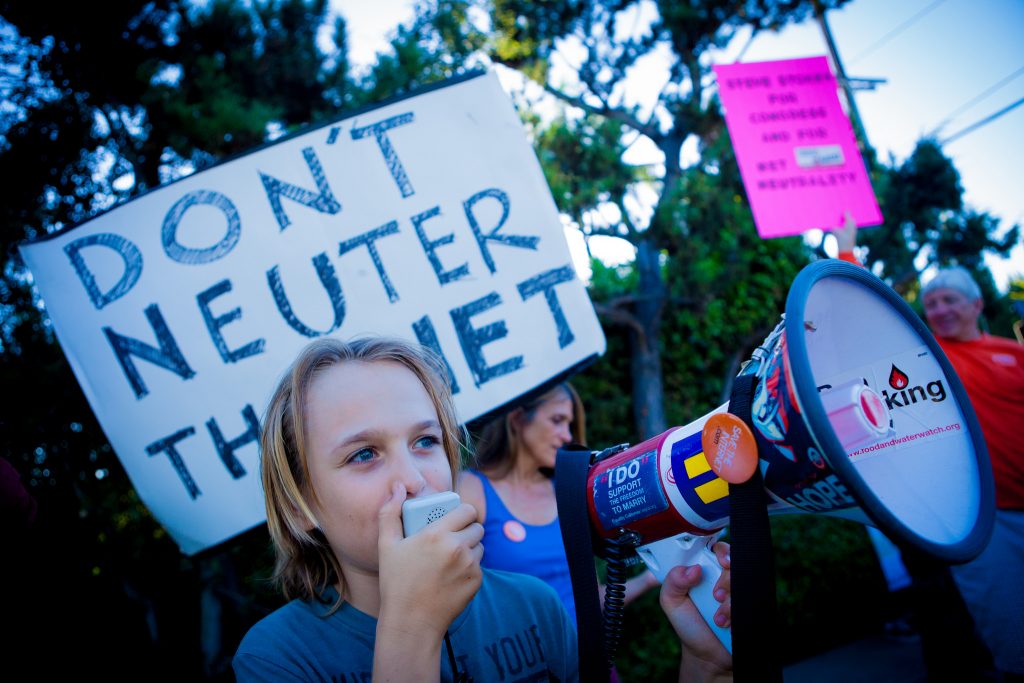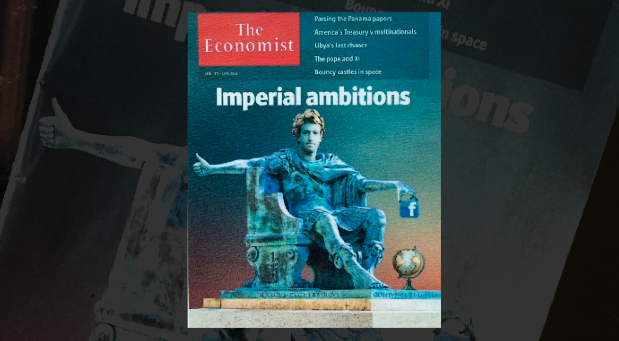The Internet as a global public resource is at risk. How do we grow the movement to protect it? Thoughts from PDF
Today I’m in New York City at the 13th-annual Personal Democracy Forum, where the theme is “The Tech We Need.” A lot of bright minds are here tackling big issues, like civic tech, data privacy, Internet policy and the sharing economy. PDF is one of the world’s best spaces for exploring the intersection of the Internet and society — and we need events like this now more than ever.
This afternoon I’ll be speaking about the open Internet movement: its genesis, its ebb and why it needs a renaissance. I’ll discuss how the open Internet is much like the environment: a resource that’s delicate and finite. And a resource that, without a strong movement, is spoiled by bad laws and consolidation of power by a few companies.
At its core, the open Internet movement is about more than just technology. It’s about free expression and democracy. That’s why members of the movement are so diverse: Activists and academics. Journalists and hackers.

Today, this movement is at an inflection point. The open Internet is increasingly at risk. Openness and freedom online are being eroded by governments creating bad or uninformed policy, and by tech companies that are creating monopolies and walled gardens. This is all compounded by a second problem: Many people still don’t perceive the health of the Internet as a mainstream issue.
In order to really demonstrate the importance of the open Internet movement, I like to use an analogue: The environmental movement. The two have a lot in common. Environmentalists are all about preserving the health of the planet. Forests, not clearcutting. Habitats, not smokestacks. Open Internet activists are all about preserving the health of the Internet. Open source code, not proprietary software. Hyperlinks, not walled gardens.
The open Internet is also like the environmental movement in that it has rhythm. Public support ebbs and flows — there are crescendos and diminuendos. Look at the cadence of the environmental movement: It became a number of times in a number of places. For example, an early crescendo in the US came in the late 19th century. On the heels of the Industrial Revolution, there’s resistance. Think of Thoreau, of “Walden.” Soon after, Theodore Roosevelt and John Muir emerge as champions of the environment, creating the Sierra Club and the first national parks. Both national parks and a conservation movement filled with hikers who use them both become mainstream — it’s a major victory.
But movements ebb. In the mid-20th century, environmental destruction continues. We build nuclear and chemical plants. We pollute rivers and air space. We coat our food and children with DDT. It’s ugly — and we did irreparable damage while most people just went about their lives. In many ways, this is where we’re at with the Internet today. There is reason to worry that we’re doing damage and that we might even lose what we built without even knowing it. .
In reaction, the US environmental movement experiences a second mainstream moment. It starts in the 60s: Rachel Carson releases “Silent Spring,” exposing the dangers of DDT and other pesticides. This is a big deal: Citizens start becoming suspicious of big companies and their impact on the environment. Governments begin appointing environmental ministers. Organizations like Greenpeace emerge and flourish.
For a second time, the environment becomes an issue worthy of policy and public debate. Resting on the foundations built by 1960s environmentalism, things like recycling are a civic duty today. And green business practices are the expectation, not the exception.
The open Internet movement has had a similar tempo. It’s first crescendo — its “Walden” moment — was in the 90s. Users carved out and shaped their own spaces online — digital homesteading. No two web pages were the same, and open was the standard. A rough analogue to Thoreau’s “Walden” is John Perry Barlow’s manifesto “A Declaration of the Independence of Cyberspace.” Barlow boldly wrote that governments and centralized power have no place in the digital world.
It’s during this time that the open Internet faces its first major threat: centralization at the hands of Internet Explorer. Suddenly, it seems the whole Web may fall into the hands of Microsoft technology. But there was also a push back and crescendo — hackers and users rallied to create open alternatives like Firefox. Quickly, non-proprietary web standards re-emerge. Interoperability and accessibility become driving principles behind building the Web. The Browser Wars are won: Microsoft as monopoly over web technology is thwarted.
But then comes inertia. We could be in the open Internet movement’s DDT moment. Increasingly, the Internet is becoming a place of centralization. The Internet is increasingly shaped by a tiny handful of companies, not individuals. Users are transforming from creators into consumers. In the global south, millions of users equate the Internet with Facebook. These developments crystallize as a handful of threats: Centralization. Loss of privacy. Digital exclusion.
It’s a bit scary: Like the environment, the open Internet is fragile. There may be a point of no return. What we want to do — what we need to do — is make the health of the open Internet a mainstream issue. We need to make the health of the Internet an indelible issue, something that spurs on better policy and better products. And we need a movement to make this happen.
This is on us: everyone who uses the internet needs to take notice. Not just the technologists — also the activists, academics, journalists and everyday Internet users who treasure freedom of expression and inclusivity online.
There’s good news: This is already happening. Starting with SOPA and ACTA a citizen movement for an open Internet started accelerating. We got organized, we rallyied citizens and we took stands on issues that mattered. Think of the recent headlines. When Edward Snowden revealed the extent of mass surveillance, people listened. Privacy and freedom from surveillance online were quickly enshrined as rights worth fighting for. The issue gained momentum among policymakers — and in 2015, the USA Freedom Act was passed.
Then there is 2015’s net neutrality victory: Over 3 million comments flooded the FCC protesting fast lanes and slow lanes. Most recently, Apple and the FBI clashed fiercely over encryption. Apple refused to concede, standing up for users’ privacy and security. Tim Cook was applauded, and encryption became a word spoken at kitchen tables and coffee shops.
Of course, this is just the beginning. These victories are heartening, for sure. But even as this new wave of internet activism builds, the threats are becoming worse, more widespread. We need to fuel the movement with concrete action — if we don’t, we may lose the open Web for good. Today, upholding the health of the planet is an urgent and enduring enterprise. So too should upholding the health of the Internet.
A small PS, I also gave a talk on this topic at re:publica in Berlin last month. If you want to watch that talk, the video is on the re:publica site.
